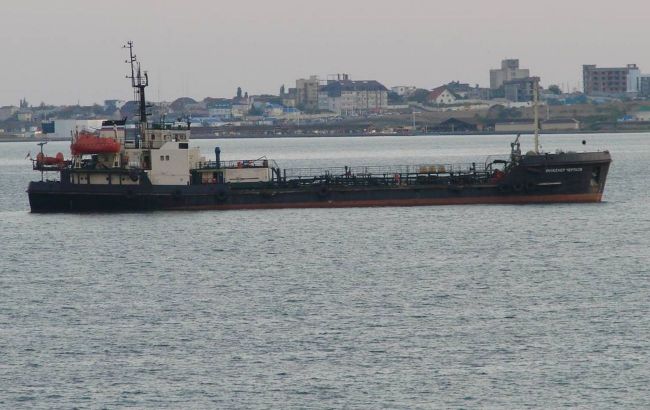Russian oil fleet ceases to operate under flags of Liberia and Marshall Islands
 Russian tankers are losing the flags of the Marshall Islands and Liberia (photo: Russian media)
Russian tankers are losing the flags of the Marshall Islands and Liberia (photo: Russian media)
Oil tankers used by the Russian Federation are ceasing to operate under the flags of Liberia and the Marshall Islands. This comes after the US has intensified sanctions on vessels associated with these registries, according to Reuters.
Dozens of Russian tankers have lost the ability to operate under these flags in recent weeks.
The change reflects the close relationship between the US and the flag management companies of Liberia and the Marshall Islands, whose headquarters are located not in their countries, but in Virginia (USA), within the jurisdiction of American sanctions.
According to energy and sanctions experts, the intensive use of these flags in the past is also a potentially long-term vulnerability for the Russian oil fleet, whose tankers will remain responsible for sanctions violations even after they switch to a new flag outside the reach of the US.
According to Craig Kennedy, a center associate at Harvard University's Davis Center for Russian and Eurasian Studies, they have created an enduring liability and enduring risk.
Restrictions on the use of Western maritime services
Countries of the Group of Seven (G7), the European Union, and Australia set a price limit on the export of Russian oil at $60 per barrel in December 2022 as part of expanding economic sanctions due to the large-scale military aggression against Ukraine.
The limit prohibits the use of Western maritime services when tankers transport Russian oil at a price equal to or exceeding the limit. According to a US official speaking to journalists, the flag registries of Liberia and the Marshall Islands qualify as Western services.
The US Department of the Treasury imposed sanctions on approximately 41 oil tankers since October of last year for violating Russian price limits, 24 of which were operating under the flag of Liberia and one under the flag of the Marshall Islands.
Russian tankers are losing flags of other countries
Almost all other tankers operated under the flag of Gabon, including 12 out of 14 that were sanctioned by the US Treasury on February 23. Among these tankers flying the Gabonese flag and falling within the sphere of interest of the leading Russian shipping company Sovcomflot (SCF), at least 3 recently sailed under the flag of Liberia, according to the publication.
According to the data, these tankers were among many ships in the SCF fleet that were heading to Gabon. As of early February, SCF had 42 tankers in its fleet out of 147 tankers that had recently switched to the Gabonese flag, mostly from Liberia and Panama.
The Liberian registry told Reuters that all vessels under the Liberian flag that were sanctioned are in the process of being delisted from their Liberian flags.
What are they saying in Liberia, Gabon, and the Marshall Islands
As told by a US official, Liberia has been actively cooperating with the US Treasury, and the sanctioned tankers have approximately three months to switch to another flag.
Officials from the Marshall Islands registry are also in contact with US agencies regarding this issue, said a representative of the Marshall Islands registry.
According to Loïck Muduma, Gabon's Minister of Transport, many tankers have recently left the Liberian registry for Gabon. He added that Gabon will remove them from the list if it is found that they are engaged in illegal activities.
Sanctions against the Russian oil industry
Earlier reports indicated that Western sanctions had led to half of Russia's oil and oil products exports in 2023 going to China, while India's share grew to 40% in two years. Europe's share in Russian oil exports fell tenfold to around 4-5%.
Recently, the US Treasury Department imposed sanctions on Russia's leading tanker group, Sovcomflot, to reduce Russia's revenue from oil sales, which it could use to support its invasion of Ukraine.
In late February, Bloomberg reported that two oil tankers had ceased operations near the shores of Greece just days after the US imposed new sanctions on 14 Russian vessels.
It was also reported in March that Indian state-owned refineries are avoiding Russian oil due to the risk of sanctions.

